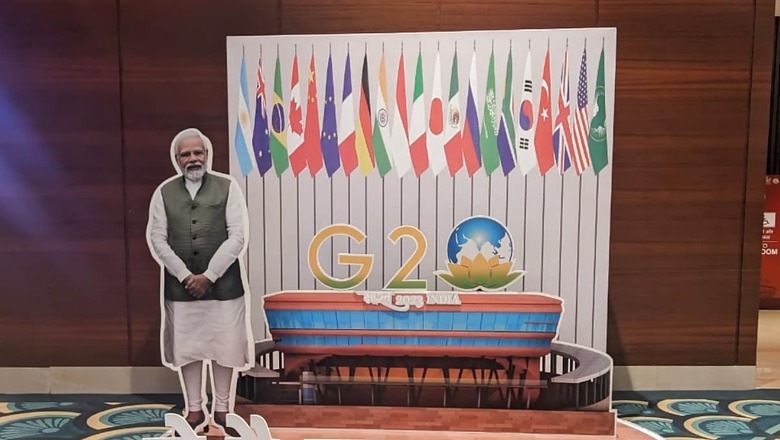
views
A recent report by Stanford’s US-Asia Technology Management Center (US-ATMC)
has praised India’s leadership of the G20 under Prime Minister Narendra Modi
as the most inclusive presidency in history, former NITI Aayog CEO Amitabh Kant, who was also India’s G20 sherpa, has pointed out on social media site X.
Titled ‘Navigating Multilateralism: G20 Agenda Evolution and the Rising Global South’, the report says that India assumed the presidency amid lasting socio-economic effects of the Covid-19 pandemic, geopolitical tensions in Ukraine,
and unresolved issues raising doubts about achieving consensus on discussed matters.
The latest report by @Stanford titled 'Navigating Multilateralism: G20 Agenda Evolution and the Rising Global South' applauds India's leadership of #G20 under PM @narendramodi as the most inclusive Presidency in history. India spearheaded the narrative that nations from the… pic.twitter.com/7SG7iLKKxj— Amitabh Kant (@amitabhk87) April 4, 2024
The New Delhi Summit was a significant event, adds the report, and reflective of the increasing influence of the global south in the economic landscape. “In line with current global scenario, developing economies, facing amplified vulnerability to
contemporary challenges, were central during the Indian presidency, addressing issues pertinent to the global south. Key agenda items included women-led development, sustainability, progress towards Sustainable Development Goals (SDGs), advocating digital public infrastructure, and supporting developing nations in leveraging these advancements,” it says. “As observed in the study, unlike past trends where sustainability and development matters were subsumed within economic contexts, this presidency emphasized these issues independently. It extended discussions beyond traditional economic realms by integrating social and environmental priorities.”
For instance, says the report, the New Delhi Leaders’ Declaration acknowledged Artificial Intelligence (AI) not just as an economic catalyst but also as a tool to enhance sustainability. “The addition of the African Union at the New Delhi Summit bolstered inclusivity, lending credibility to decisions and fostering greater collaboration among diverse nations. Critics have often highlighted concerns regarding the non-binding nature of G20 commitments, limited membership, and absence of a fixed secretariat. However, the forum’s flexibility and informality have proven advantageous in addressing pressing global issues. Embracing complexity, the G20’s unconventional diplomacy model may exemplify a new facet of multilateralism, emphasizing adaptability and pragmatism over rigid structures,” it says.




















Comments
0 comment